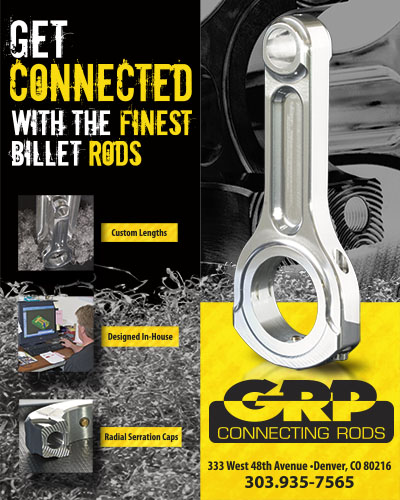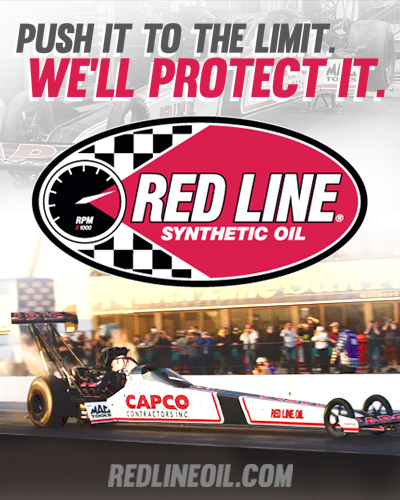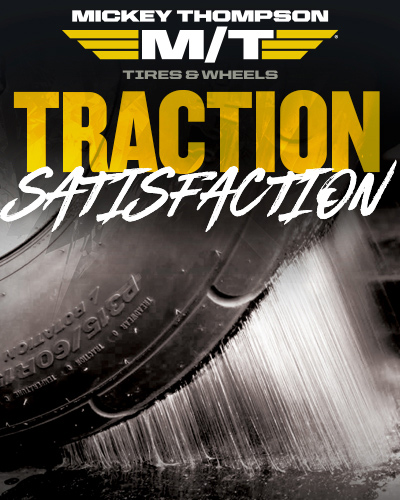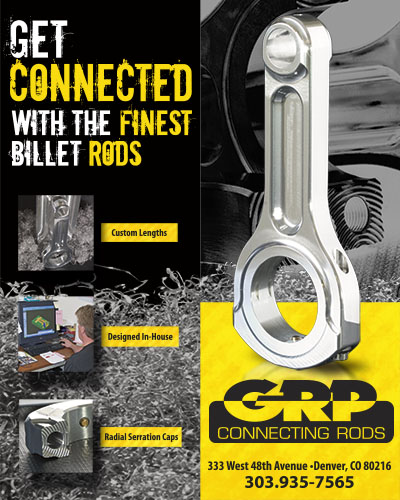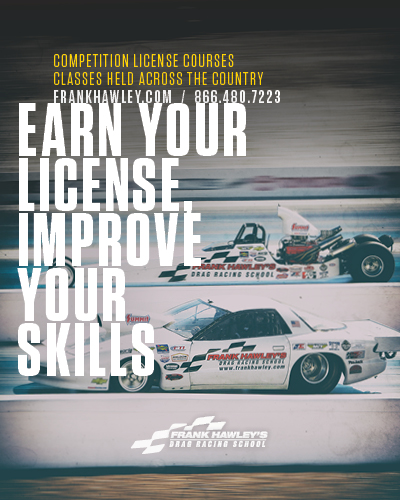EXCLUSIVE INTERVIEW - BOB VANDERGRIFF JR BREAKS HIS SILENCE
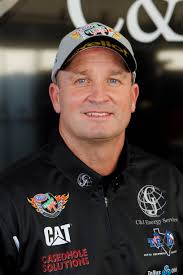 Bob Vandergriff Jr. made the abrupt decision to park his two-car Top Fuel team and retire on April 11, 2016. This move left drivers, Leah Pritchett and Dave Connolly, along with two dozen crewmembers in search of employment.
Bob Vandergriff Jr. made the abrupt decision to park his two-car Top Fuel team and retire on April 11, 2016. This move left drivers, Leah Pritchett and Dave Connolly, along with two dozen crewmembers in search of employment.
Vandergriff's decision was largely fueled by the death of longtime sponsor Josh Comstock, and the loss of backing from his C&J Energy Services.
Vandergriff has since been silent on the issue.
In this exclusive interview with CompetitionPlus.com, Vandergriff speaks about what led up to his tough decision, the landscape of the nitro land and other key topics you won't want to miss.
COMPETITIONPLUS.COM - There's been a lot of speculation about the timing of your retirement, can you explain what transpired that created that decision?
BOB VANDERGRIFF JR - Well obviously a perfect storm transpired, the death of CEO Josh Comstock combined with the disastrous conditions of the oil field industry which were far worse than originally forecasted and have continued much longer than anyone expected. After Josh's death I was made aware that there was a very good chance that I could be left with a half a million dollars worth of bills, payroll for 25 employees and no money coming toward the program in the near future or I could accept an offer that would allow me to ensure that all of my vendors got paid, my employees payroll and bonuses would get paid. I just couldn't take the gamble and put my family at risk. In light of C&Js recent filing for chapter 11 reorganization, I'm certain the decision was the correct one.
CP - Wasn't there a two-year contract in place for the C&J program that would have forced them to honor their contract?
BV2 - Actually we were in the second year of a 3 year contract but with a chapter 11 filing and BVR being a non-critical vendor we would have been among the first to go.
CP - You had to know when you started the deal with C&J; there was a limited shelf life. When you decided to get out of the seat, why didn't you just call it a career then?
BV2 - The shelf life comment is off base, if it were not for the disastrous downtown of oil field industry our program would still be going strong. It was very successful, it created huge savings and generated a great deal of business for C&J because of the business model that Josh and I created, the program was paid for through a unique model that utilized C&Js purchases as the funding mechanism. Unfortunately, with the downturn, their purchases to their vendors decreased significantly which in turn had a direct impact on the volume of funding that went to the race team. Josh and I both had a vision of what we wanted to build and we both agreed, from a personal and family stand point, that it would be best that I put someone in the drivers seat. In saying that, I couldn't have been more pleased with Dave Connolly as my replacement, if I do return to the sport the driving job is his, if he wants it.
The sport can't prosper when 90% of the professional
team owners do it as a hobby and not as their livelihood.
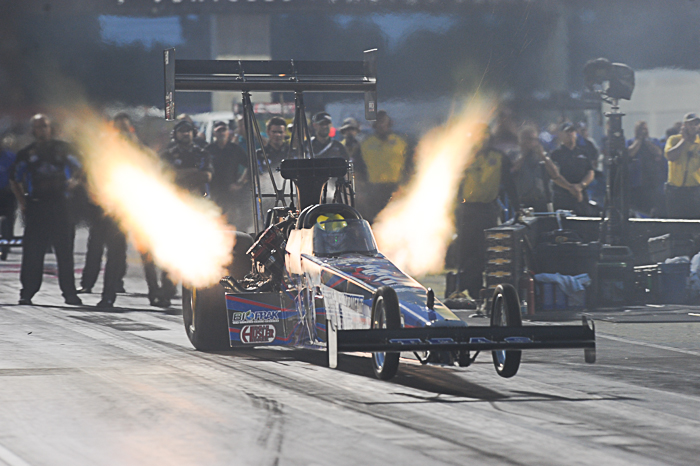 CP - With NHRA on an apparent upswing, and television ratings growing, why wasn't there enough incentive to keep moving forward, even without sponsorship. Wouldn't this have been the perfect time to build on the future?
CP - With NHRA on an apparent upswing, and television ratings growing, why wasn't there enough incentive to keep moving forward, even without sponsorship. Wouldn't this have been the perfect time to build on the future?
BV2 - Don't be mislead by the increased television numbers. While its great that we're seeing an increase, there was really no way to go but up. Remember, 10 years ago we had these numbers and the reason we're able to see an increase is that they had dropped so far. I don't really see this as an increase but instead just getting back what we had. When we start seeing 2.0 ratings I'll be impressed and consider that a valid increase.
CP - How precarious of a position is nitro racing in with three owners accounting for 15 full time teams?
BV2 - Very precarious, and it's a combination of factors that create that. First, the cost vs value factor has gotten so far out of whack that the sport isn't sustainable with the current model. I can tell you that for BVR to move from a top 10 team to a top 5 team did cost an additional half million dollars per team. When you do that to win an additional $15-20k in top 10 money, you might need to have your head examined. I've been guilty of letting my competitiveness outweigh my business sense.
Secondly, the sport can't prosper when 90% of the professional team owners do it as a hobby and not as their livelihood. What I mean by that is if you're comfortable spending 2 or 3 million bucks out of your pocket on your hobby would a 10% increase deter you? Probably not in the short term but eventually maybe, as we're seeing across the sport like with V Gaines recent retirement announcement at some point the question becomes am I having enough fun to justify what I'm spending? Eventually it doesn't matter how much money you have that answer becomes no. On the other hand, if it's your livelihood, that 10% increase relates to 4-5 crew members salaries or a third of your parts budget and you just can't make that up from a sponsorship standpoint when you're already struggling trying to cover your operating costs and maintain competitive position in the field.
CP - You caught a ration of backlash over the abrupt way you left, will you ever try to change the opinion of those who drew a negative opinion of you over this?
BV2 - No, anyone that really knows me knows I don't really care what others think, I make what I feel is the right decision and go with it and then own it 100%, you can't change an someone's opinion when it's based on a lack of knowledge of the situation. What really amazed me was how certain people were so strong in their opinions with no real information regarding facts.
CP - You did a joint one-race deal with Schumacher and Leah Pritchett in Houston, why? If you were done with the sport.
BV2 - First off that deal had nothing to do with Schumacher. I did it for one reason and one reason only and it was to help Leah potentially use that race to further cement her relationship with Quaker State and to help the employees on her team potentially earn a paycheck a little while longer. It was part of a strategy that included more than one race but in the end turned out to be a decision that I regret, if I had to do it all over again, I wouldn't do it.
CP - If you do come back, how will you convince employees to come back based on what happened?
BV2 - When I stopped racing earlier this year I was perfectly content with selling all of my equipment and retiring. Unfortunately, I have not found one legitimate buyer, which is not exactly a glowing endorsement of the current state of drag racing. Even a fire sale wasn't enough incentive for anyone to buy my operation. With that in mind, I can either let that stuff sit there and become obsolete or try and put together a new program and have BVR return to the sport.
I have started making some initial steps in that direction and have generated some interest from companies that know the type of success I've had in the past creating a great return for our previous partners. If I do return it will be under a whole new model of operation, focused on the bottom line. You might not see us run all of the qualifying sessions, our employee lineup will be different, our rigs might just roll into the track on Friday mornings, not Wednesdays, we will look at all forms of cost control to try and get the cost vs value factor back in line.
As far as people most anyone that has worked for me in the past would return should the right opportunity present itself, if I do return we will have the right personnel to be a top team I can promise you that.























